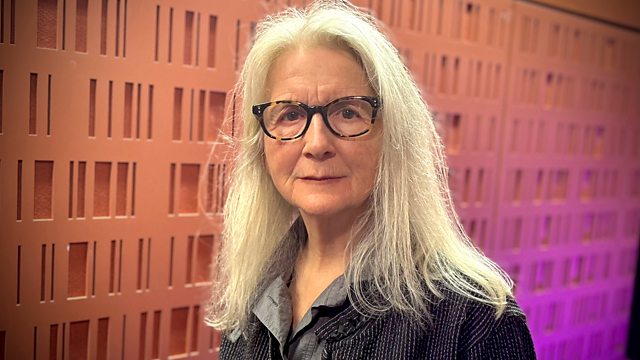Sally Potter
Film-maker Sally Potter talks to John Wilson about the formative influences and experiences that inspired her own creative work.
Sally Potter is a ground-breaking film-maker, best known for her bold 1992 adaptation of Virginia Woolf’s novel Orlando. Starring Tilda Swinton, it was nominated for two Academy Awards and won more than 25 international film prizes. With her 1983 debut feature The Gold Diggers, which starred Julie Christie, Sally Potter led an all-female cast and crew, establishing herself as a trailblazing figure within independent cinema. She is renowned for her radical and experimental approach to film-making. Her 2004 love story Yes was scripted entirely in iambic pentameter; Rage in 2009, set backstage at a fashion show and starring Jude Law, Steve Buscemi and Judi Dench, became the world’s first movie to premier directly on mobile phones. A multitasking filmmaker, Sally Potter’s screen credits also include actor, editor, choreographer and composer. She has written and directed nine feature films including The Party and The Roads Not Taken.
Sally Potter tells John Wilson about her upbringing in a liberal, creative household in London. She recalls how she was given a 8mm cine camera by the artist Sandy Daley when she was 14, the start of her fascination with film-making. After learning more about the craft of cinematography, processing and editing film at the London Film Cooperative, she studied dance and choreography at The Place, an experience that later inspired her 1997 film the Tango Lesson. Having recently released an album of songs, she talks about the creative impulse that inspired them. She also discusses reading Virginia Woolf’s Orlando and the struggle to make her screen adaptation in the face of warnings from film producers that the book was ‘unfilmable’.
Producer: Edwina Pitman
Last on
Broadcasts
- Sat 19 Aug 2023 19:15����ý Radio 4
- Mon 21 Aug 2023 14:15����ý Radio 4
Podcast
-
![]()
This Cultural Life
In-depth conversations with some of the world's leading artists and creatives.


